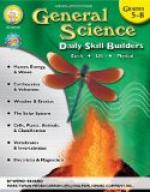235. The Preservation of Wood and Metal. The decaying of wood and the rusting of metal are due to the action of air and moisture. When wood and metal are surrounded with a covering which neither air nor moisture can penetrate, decay and rust are prevented. Paint affords such a protective covering. The main constituent of paint is a compound of white lead or other metallic substance; this is mixed with linseed oil or its equivalent in order that it may be spread over wood and metal in a thin, even coating. After the mixture has been applied, it hardens and forms a tough skin fairly impervious to weathering. For the sake of ornamentation, various colored pigments are added to the paint and give variety of effect.
Railroad ties and street paving blocks are ordinarily protected by oil rather than paint. Wood is soaked in creosote oil until it becomes thoroughly saturated with the oily substance. The pores of the wood are thus closed to the entrance of air and moisture, and decay is avoided. Wood treated in this way is very durable. Creosote is poisonous to insects and many small animals, and thus acts as a preservation not only against the elements but against animal life as well.
CHAPTER XXV
DRUGS AND PATENT MEDICINES
236. Stimulants and Narcotics. Man has learned not only the action of substances upon each other, such as bleaching solution upon coloring matter, washing soda upon grease, acids upon bases, but also the effect which certain chemicals have upon the human body.
Drugs and their varying effects upon the human system have been known to mankind from remote ages; in the early days, familiar leaves, roots, and twigs were steeped in water to form medicines which served for the treatment of all ailments. In more recent times, however, these simple herb teas have been supplanted by complex drugs, and now medicines are compounded not only from innumerable plant products, but from animal and mineral matter as well. Quinine, rhubarb, and arnica are examples of purely vegetable products; iron, mercury, and arsenic are equally well known as distinctly mineral products, while cod-liver oil is the most familiar illustration of an animal remedy. Ordinarily a combination of products best serves the ends of the physician.
Substances which, like cod-liver oil, serve as food to a worn-out body, or, like iron, tend to enrich the blood, or, like quinine, aid in bringing an abnormal system to a healthy condition, are valuable servants and cannot be entirely dispensed with so long as man is subject to disease.
But substances which, like opium, laudanum, and alcohol, are not required by the body as food, or as a systematic, intelligent aid to recovery, but are taken solely for the stimulus aroused or for the insensibility induced, are harmful to man, and cannot be indulged in by him without ultimate mental, moral, and physical loss. Substances of the latter class are known as narcotics and stimulants.




